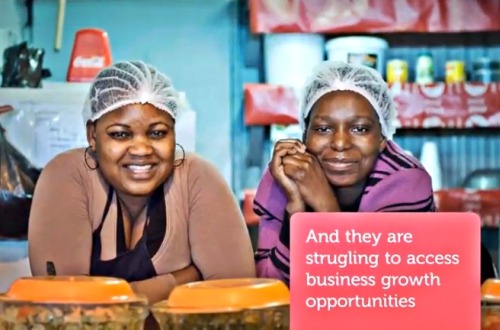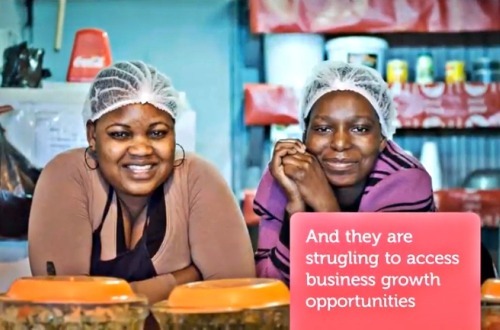
Although the legal sector has had to play catch-up to the fast-changing business environment, many believe disruption is not far behind.
There have been an increasing number of startups that are not only looking to bring tech to the sector but also using the new technologies to solve some of the challenges within the industry.
The rise of the legal tech startup has seemingly breathed new life into the sector with most of these startups hoping to provide greater access to justice for millions of people who previously were denied this access due to factors such as education, geography and affordability.
Stimulating the sector
According to the Hague Institute for Innovation of Law (HiiL), an organisation that works to promote better access to legal systems and justice across the world, there are an estimated four billion people who do not have access to justice, and innovations in tech are steadily closing the gap.
HiiL, in partnership with the Ford Foundation, recently held the Innovating Justice Boostcamp in Johannesburg, which featured pitches by what they referred to as ‘the most innovative, disruptive legal and justice ventures’ in Africa.
These startups were selected from more than 400 candidates from all over Africa with the finalists being offered the opportunity to pitch for the Innovating Justice Awards and acceleration funding worth over €160 000 in The Hague later in the year.
With pitching startups ranging from an e-commerce website for small businesses to an SMS interactive technology platform for providing legal aid to impoverished communities, these 5 startups are looking to bring a different and innovative approach to solving some of the continent’s biggest legal challenges and could very well be the next tech disruptors.
Business M+
Business M+ hopes to tackle some of the legal challenges facing female entrepreneurs in the informal sectors such as difficulties in registering their small businesses.
ideiaLab, a Mozambican social enterprise founded in 2010 by two women entrepreneurs, launched Business M+. This is a startup that aims to support women operating in the informal sector, engaged with both physical and online sales.
Business M+ provides managerial and digital skills so that the women can develop and formalise their businesses, allowing for sustainable growth. Their hope is to promote a fairer business environment for women entrepreneurs in Mozambique.
Julio Maria, community catalyst at IdeiaLab on Business M+’s impact: “There are so many challenges to starting a business, so many things that you have to know, [for example] ‘who you should talk to, to formalise your business? What is brand registration?’
“Going to the public institutions [is also very difficult to navigate] that is if you don’t run into corruption. We haven’t even spoken about the business side of it and all the things you have to do to have revenue. This is exactly the space that Business M+ is hoping to make an impact. To make this process simpler for the entrepreneurs.”
Citizen Justice Network
Citizen Justice Network (CJN) is tackling the lack of access to legal practitioners and information many communities in rural areas and townships face.
CJN trains community paralegals to be radio journalists around the country in 6 areas. They have trained 12 paralegals in rural areas around SA.
The Citizen Justice Network investigates and highlights unreported miscarriages of justice in rural South Africa. It trains local activists to compile radio reports and broadcast them on community and national media and also gives a platform to help marginalised communities know their rights and gain better access to public justice services.
CJN founder, Paul McNally on how they are making a difference: “We’ve used community radio as a very powerful tool in order to spread legal awareness to as many people as possible in our areas. We also see it as a great way to spread legal advice so people would have a good idea of what they should do and where they should go if they need help.”
Ufulu Wanga
mHub is hoping to use the Ufulu Wanga digital platform to tackle the challenge of access to legal recourse, practitioners and information to enable people to make more informed legal choices.
The project is a web to SMS interactive technology platform that allows a person to send an anonymous report on human rights violations such as domestic violence; queries on separation and divorce procedures and issues pertaining to child custody.
Ufulu Wanga is a startup founded out of mHub, Malawi’s first technology hub.
Co-founder Rachel Sibande on the social impact of mHub and Ufulu Wanga:” It’s a digital disruption, and I think just like how mobile had come to disrupt the way that we traditionally did things. As mHub we are a social entreprise, we develop technology solutions such as websites and mobile applications.
“As a business, we plough back our profits for social good and use them to train young girls to develop technology applications, to maintain hardware but also on social entrepreneurship. This led to Ufulu Wanga, which uses these technologies to help the larger community find solutions for their various legal problems.”
Legal Legends
Legal Legends is looking to provide solutions for SMEs who are unable to afford legal services for their businesses.
Describing itself as Africa’s, and possibly the world’s first legal eCommerce website, Legal Legends offers affordable legal services for entrepreneurs, startups and small businesses, offered at fixed upfront prices.
Founder Kyle Torrington on how they are helping the small guy: “We concentrate on small businesses and entrepreneurs.
“So we’re here to help the guys that traditionally haven’t been able to afford legal services but have a small amount to spend and we really want to help those startups formalize their businesses and become something really investable, something that an investor would have a look at and go ‘actually I like how this business has been established, they seem to be formalized correctly and I would like to invest in them’, which would take them to the next level.”
Origin Systems
Origin Systems is also hoping to bridge the affordability gap for SMEs who are unable to afford legal services.
Origin Systems is a contract management systems that uses software that delivers document and contract lifecycle management.
Thandi Lamprecht, group legal counsel for Origin Systems on marrying tech and law: “For a small business to go and consult a lawyer can run into thousands of Rands and small businesses don’t have that kind of money.
“Similarly, if you try and take a shortcut and see a cheap lawyer who may not know what they are doing or a do-it-yourself kind of solution you end up with inferior documents and inferior products and you can’t compete with large businesses. Simply harnessing the power of law means you can grow your business and you need to be able to do that in a cheap affordable way which is a real challenge for small businesses. That is why we offer affordable solutions to SMMEs and we do that through marrying technology and law.”






